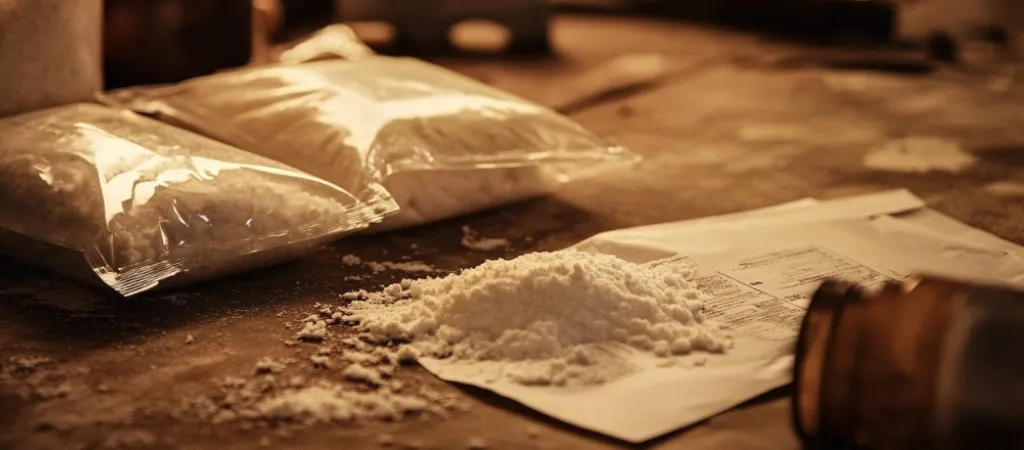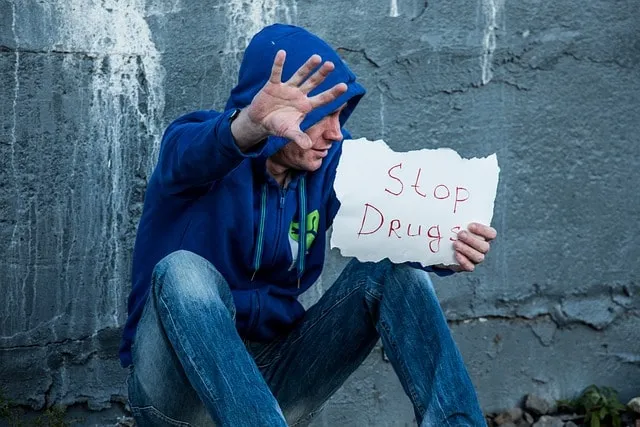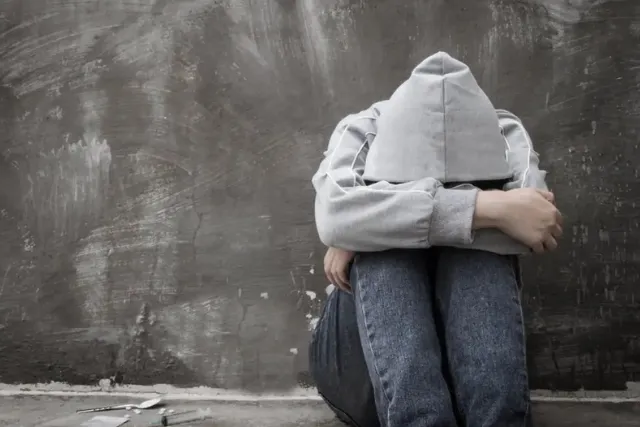Cocaine Addiction Treatment
Cocaine addiction is one of the most powerful and destructive forms of substance use disorder. It doesn’t just affect the person using the drug—it impacts families, communities, and even economies. Classified as a stimulant, cocaine speeds up the brain’s communication pathways, creating an intense sense of euphoria and energy. However, this short-lived high is usually followed by an equally strong crash, which pushes many users to take more. Over time, the brain becomes dependent, and what once felt like a choice quickly becomes a compulsive need.
Statistics show that millions worldwide struggle with cocaine misuse, with the United Nations Office on Drugs and Crime reporting that around 20 million people use cocaine annually. The danger lies not only in its addictive nature but also in the long-term health consequences, ranging from heart problems to severe mental health disorders.
But here’s the hopeful truth: cocaine addiction is treatable. With the right interventions, therapy, and support systems, many people successfully recover and live full, healthy lives.
Understanding Cocaine Addiction
Cocaine is a potent stimulant that increases dopamine levels in the brain, creating intense euphoria. Over time, the brain becomes dependent on the drug to function, making quitting extremely difficult without treatment. Withdrawal symptoms such as depression, fatigue, and cravings often push users back into relapse. Effective treatment addresses both the physical dependency and the psychological aspects of addiction.
Early Warning Signs of Cocaine Addiction
Spotting cocaine addiction early can save lives. Like many addictions, it doesn’t happen overnight—it starts with recreational use and gradually becomes compulsive.
Behavioral Symptoms
Increased secrecy or lying about activities
Neglecting responsibilities at work, school, or home
Risky behaviors such as unsafe sex or reckless spending
Social withdrawal or change in friend groups
Physical Symptoms
Dilated pupils and runny nose
Rapid heartbeat and high blood pressure
Sudden weight loss
Nosebleeds (for those who snort cocaine)
Burns on lips or fingers (for those who smoke crack)
Medical Detoxification for Cocaine Addiction
The first step in most recovery journeys is medical detox. This process helps individuals safely eliminate cocaine from their system while managing withdrawal symptoms.
24/7 medical supervision ensures that complications like severe depression, anxiety, or suicidal thoughts are addressed.
Medications may be prescribed to ease cravings and reduce withdrawal severity.
Detox alone is not a cure; it prepares patients for the next stages of treatment.
Detox can take anywhere from 5 to 10 days, depending on the severity of use and overall health condition.
Search Query
Nasha Mukti Kendra |
Rehab Near Me |
Rehab Centers Near Me |
Rehabilitation Center Near Me |
Alcohol Rehab Near Me |
Detox Centers Near Me |
Drug Rehab Near Me |
Alcohol Rehab |
Detox Near Me |
Rehabilitation Centre |
Inpatient Rehab Near Me |
Outpatient Rehab Near Me |
Treatment Centers Near Me |
Nasha Mukti |
Alcohol Detox Near Me |
Detox Center |
Drug Treatment Centers Near Me |
Recovery Center |
Rehabilitation Near Me |
Alcohol Treatment Near Me |
Addiction Treatment Centers |
Drug Detox Near Me |
Mental Health Rehab |
Addiction Treatment Near Me |
Mental Health Treatment Centers |
Nasha Mukti |
Vyasan Mukti Kendra Near Me |
Nasha Mukti Centre |
Daru Mukti Kendra |
Mukti Kendra |
Near Nasha Mukti Kendra |
Best Nasha Mukti Kendra Near Me |
Nasha Kendra |
Sankalp Nasha Mukti Kendra |
Nasha Mukti Kendra Near By Me |
Sharab Mukti Kendra |
Daru Mukti Kendra Near Me |
Nasha Mukti Near Me |
Nasha Mukti Kendra Charges |
Vyasan Mukti Hospital |
Vyasan Mukti |
Vyasan Mukti Kendra Near Me |
Vyasanmukti Kendra |
Medical Detox Near Me |
Detox Facilities Near Me |
Nasha Mukti |
Nearby Nasha Mukti Kendra |
Near By Nasha Mukti Kendra |
Vyasan Mukti Kendra Near Me |
Best Nasha Mukti Kendra Near Me |
Nasha Mukti Kendra Near By Me |
Daru Mukti Kendra |
Nasha Mukti Near Me |
Nasha Kendra |
Nasha Mukti Kendra Near By |
Daru Mukti Kendra Near Me |
Mukti Kendra |
Best Nasha Mukti Kendra |
Samarpan Nasha Mukti Kendra |
Nasha Mukti Centre Near Me |
Nasha Sharab Kendra |
Nasha Mukti Kendra Charges |
Nishulk Nasha Mukti Kendra |
Nasha Chadao Kendra |
Sharab Mukti Kendra |
Pgi Nasha Mukti Kendra |
Nasha Mukti Kendra Guna |
Nasha Mukti Kendra In |
Nasha Mukti Kendra No |
Nasha Mukti Kendra Near |
Daru Vyasan Mukti Kendra |
Daru Sodva Vyasan Mukti Kendra |
Alcohal Addiction Treatment Center |
Drug Addiction Treatment Center |
Nasha Mukti Kendra Contact Number |
नशा मुक्ति केंद्र में इलाज |
सरकारी नशा मुक्ति केंद्र कहां है |
नशा मुक्ति केंद्र |
बेस्ट नशा मुक्ति केंद्र इन इंडिया |
निशुल्क नशा मुक्ति केंद्र |
नशा मुक्ति केंद्र फीस |
नशा मुक्ति केंद्र में किस-किस प्रकार के मरीज होते हैं |
नशा मुक्ति केंद्र के नियम |
नशा मुक्ति केंद्र में कितना खर्च आता है? |
नशा मुक्ति केंद्र में मरीज को कितने दिन तक रखा जाता है? |
नशा मुक्ति केंद्र में इलाज कैसे किया जाता है? |
नशा छुड़ाने के लिए कौन सी दवा है? |
नशा बंद की कीमत क्या है? |
सबसे सस्ता नशा कौन सा है? |
नशा मुक्ति केंद्र में कैसे रखा जाता है |
Rehab Near Me |
Alcohol Rehab Near Me |
Detox Centers Near Me |
Rehab Centers Near Me |
Detox Near Me |
Inpatient Rehab Near Me |
Drug Rehab Near Me |
Alcohol Detox Near Me |
Rehabilitation Center Near Me |
Alcohol Rehab |
Rehab Centers |
Alcohol Treatment Centers |
Alcohol Treatment Near Me |
Rehabilitation Centers |
Alcohol Rehab Centers Near Me |
Medical Detox Near Me |
Detox Facilities Near Me |
Drug Treatment Centers Near Me |
Inpatient Alcohol Rehab |
Inpatient Alcohol Rehab Near Me |
Substance Abuse Treatment |
Alcohol Treatment Centers Near Me |
Drug Detox Near Me |
Rehabs |
Dual Diagnosis Treatment Centers |
Drug And Alcohol Rehab Near Me |
Detox Center |
Alcohol Recovery Near Me |
Addiction Treatment Centers |
Alcohol Detox Centers Near Me |
Detox Programs Near Me |
Alcohol Rehab Facilities Near Me |
Drug Rehab Facilities Near Me |
Inpatient Detox Near Me |
Best Rehab Centers Near Me |
Detox Near Me |
Inpatient Rehab Near Me |
Drug Rehab Near Me |
Alcohol Detox Near Me |
Rehabilitation Center Near Me |
Alcohol Rehab |
Rehab Centers |
Treatment Centers Near Me |
Rehabilitation Centers |
Alcohol Rehab Centers Near Me |




